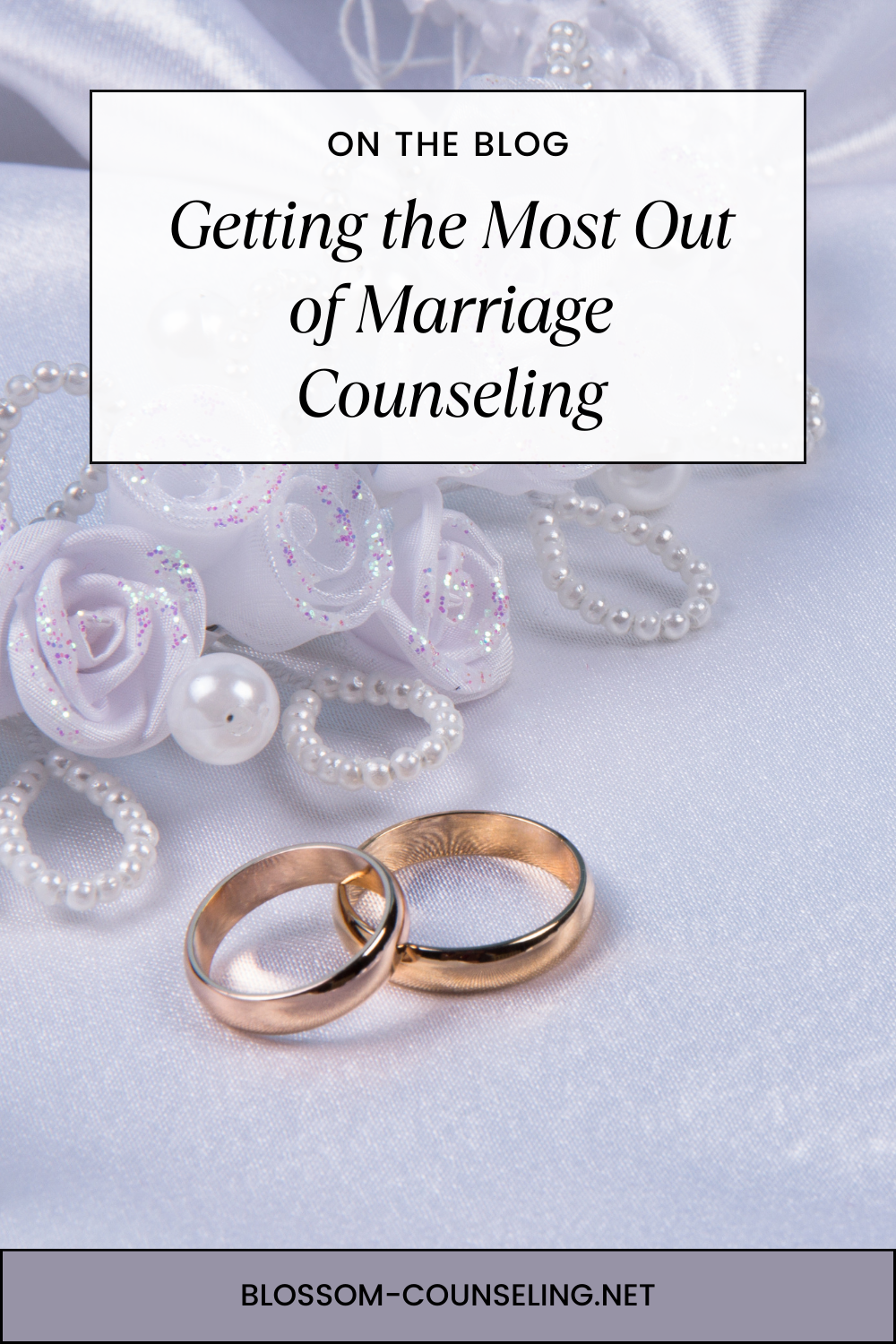
Your marriage is in trouble and you have decided to seek the assistance of a marriage counselor. You have done all the research to find a good therapist for the two of you and taken the courageous first step by setting up your first appointment.
Now what? How can you make sure that you get the most out of each session and take advantage of what your therapist has to offer?
First, for couples therapy to be effective, each of you should be expected to clean up your side of the road. If there is an ongoing affair, it has to end (unless you have both agreed that you want help in opening your marriage and that is part of what you are seeking counseling to do). But if you want a monogamous relationship to work, the affair has to end before you start counseling. Further, if there is any addiction or substance abuse issues for each partner, the addicted partner should agree to be in a separate recovery program and/or actively working on their addiction with an individual counselor or coach. Last, if there is any ongoing physical and/or emotional abuse, the abusing partner should be in an anger management program and working with an individual therapist on those personal issues. Marriage counseling may be able to put a band aid on these types of issues in your marriage, but it won’t stop the bleeding.
If you have committed to cleaning up any of the foregoing issues or they are not part of your current circumstances, the most important thing you can do to make your marriage counseling work for you is to be prepared. Marriage counseling is hard. You have to commit to doing the work when you most want to quit and sweep your issues back under the rug. You are fighting for your marriage and your family, so you need to be prepared to do the work. Your counselor is going to ask you to look at yourself and that can be painful. We want the therapist to take our side and straighten our partner out. “Get her to stop nagging!” “Get him to do things around the house!” “Tell her to
thank me once in awhile!” “He needs to romance me!” Sadly, if that is what you go into therapy looking for your therapist to do, that isn’t going to happen. You will end up feeling deeply disappointed if your only goal is to get the therapist to take your side. If you want to argue about how who is right and who is wrong, you are not going to benefit from your counseling sessions and will end up feeling frustrated and disappointed in the process.
So what is the “work”? The single most important thing you can do to benefit from marriage counseling is to be open to looking at your feelings and being vulnerable enough to share those feelings with your partner with the therapist’s guidance. When you express how your partner’s words or actions make you feel, you are on the way to bridging the gap and the work of therapy can begin from a place of openness, honestly and vulnerability. The therapist’s job is to help you express those feelings safely by teaching your partner how to listen and respond with understanding and empathy.
Once you can identify your feelings and your partner can create a feeling of safety and understanding, you should expect to dig deeper and look at how you trigger certain feelings in your partner and how those feelings came about before the relationship. Family dynamics and prior hurts from trauma or old relationships can make certain feelings feel threatening and painfully familiar. In the couples counseling sessions, you should be prepared to examine how the dynamics of your relationship perpetuate old hurts, and in doing so, you will begin to understand yourself better, see your role in creating conflict and work on changing the dynamic.
Last, when you are in marriage counseling, you need to feel that you are an active participant in the process. If something the therapist asks you to do something that makes you uncomfortable or goes too far or if some exercise or homework is helpful, you should feel safe enough to tell the therapist. You need to feel that your therapist is working and fighting for your relationship and if it doesn’t feel that way, you should find a therapist that makes you feel like they are working for your relationship – even if the work is difficult.
|
|


